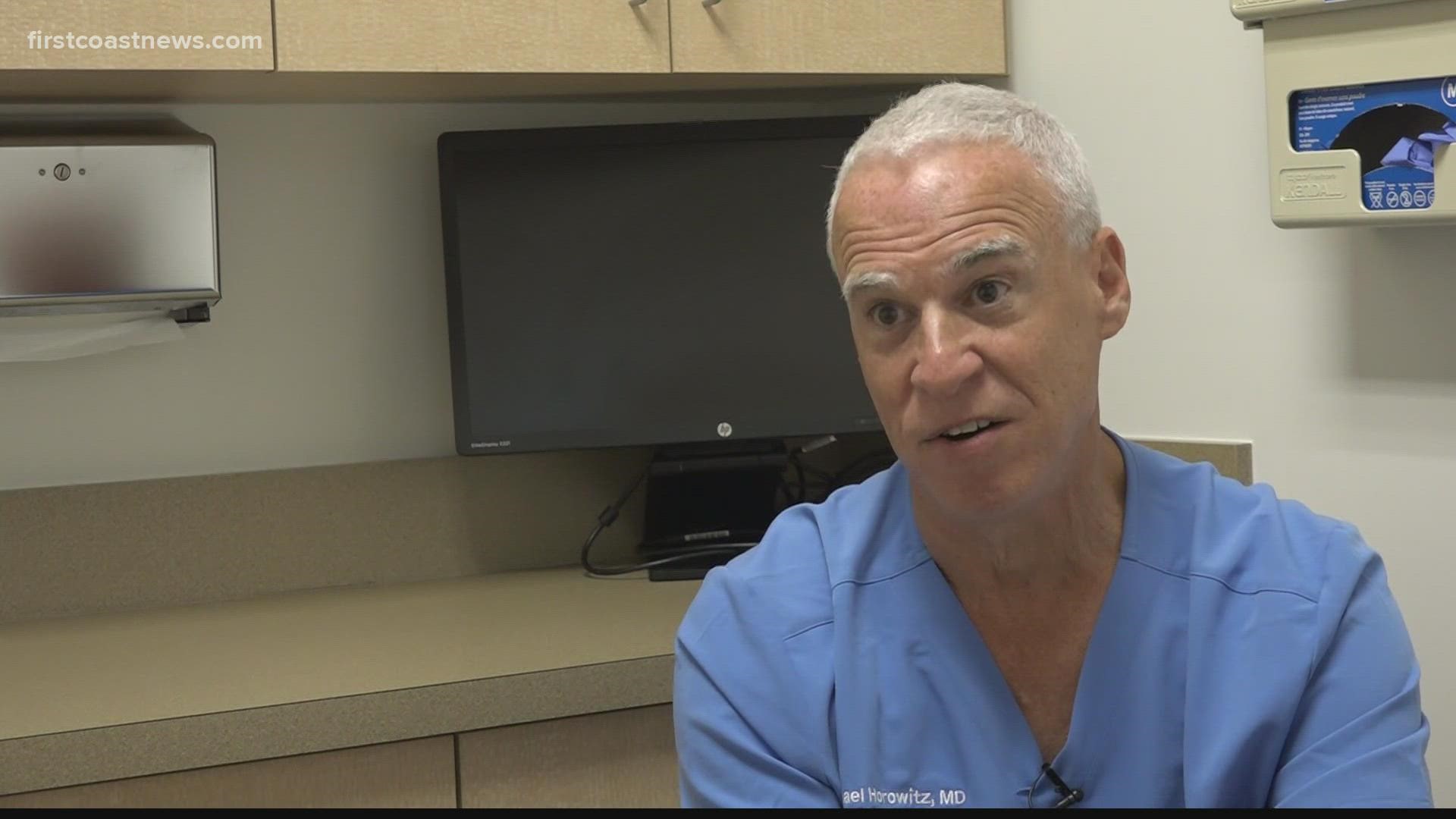ORANGE PARK, Fla. — There's a life-changing procedure on the First Coast, and people from around the country are traveling here for it.
The surgery, offered at Orange Park Medical Center, treats five rare and often disabling nerve disorders.
"Me and my wife call it the devil disease," Steven Dorsett, who traveled from Alabama for the surgery, said.
Dorsett suffered for more than three years from trigeminal neuralgia that caused excruciating facial pain.
"The triggers were just unbearable. I mean, I would have thought if anybody would have told me that there is actually a pain that you can't stand that I was like, you know, I can take anything for a little bit, but this stuff is it works on your psyche," Dorsett said.
"It's called the suicide disease for a reason," Dorsett said.
Dr. Michael Horowitz, an endovascular neurosurgeon at Orange Park Medical Center, said the nerve disorder Dorsett has affects just one in every 200,000 people. Trigeminal neuralgia and four other similar nerve disorders that can affect patients' ears and head are so rare, Horowitz said, they often get underdiagnosed.
"Just a gentle wind blowing on their face will cause sudden excruciating pain," Horowitz said. "Brushing their teeth, somebody kissing them, brushing, just touching their face ... So it's obviously an exaggerated reaction to something that should not be painful," Horowitz said.
Horowitz said the disorders are caused by blood vessels that push on the nerves when they come out of the base of the brain. The blood vessels then pulse and damage the covering of the nerve and it starts misfiring.
Horowitz is one of just a handful of doctors across the country to perform the unique treatment that essentially cushions the nerves.
"What we do is we go in and we surgically access that area through opening the skull behind the ear and it's fairly deep, but that's where we go in to get the access to the window. We operate under a microscope and we find those nerves that are coming out of the brainstem, and we find the blood vessels that are resting on them," Horowitz said.
"We put little pillows in between made out of Teflon, which is an inert substance that you can leave in forever so that we then rest the vessels back down on the nerve. They're now sitting on a pillow and they're not beating on the nerve itself," he said.
Horowitz said most patients wake up symptom-free, like Dorsett. He had the surgery in October.
"There was no way I could have thought about before the surgery just eating a simple hamburger or running out to Hardee's and get a hamburger. I couldn't do it. I couldn't eat a piece of pizza. I couldn't do anything like that. But on the backside of it, like I said, instantly I was able to eat a hamburger before I left the hospital. That's my favorite food. So, you know, before I left the hospital, I had what I called my freedom hamburger," Dorsett said.
"[It's] having your life back. It's a wonderful feeling on the backside. It's such a relief, such an emotional celebration, you know, me and my wife, actually, we're fixing to start dating again. It feels like it has been forever just locked down," Dorsett said.
Horowitz was trained to do the procedure at the University of Pittsburg. He then practiced there for more than 20 years. He said many people from across the country sought out the surgery there, and now they do the same in Orange Park.
"It's gratifying because, you know, especially for something when you're operating on people for pain, or uncontrollable facial movement, because these are the kind of pains that people are known to commit suicide over," Horowitz said.
"Most of them felt helpless, and most of them have thought about killing themselves and they feel like they got a completely new lease on life," he said.
You can learn more about nerve disorder treatments available at Orange Park Medical Center here.

